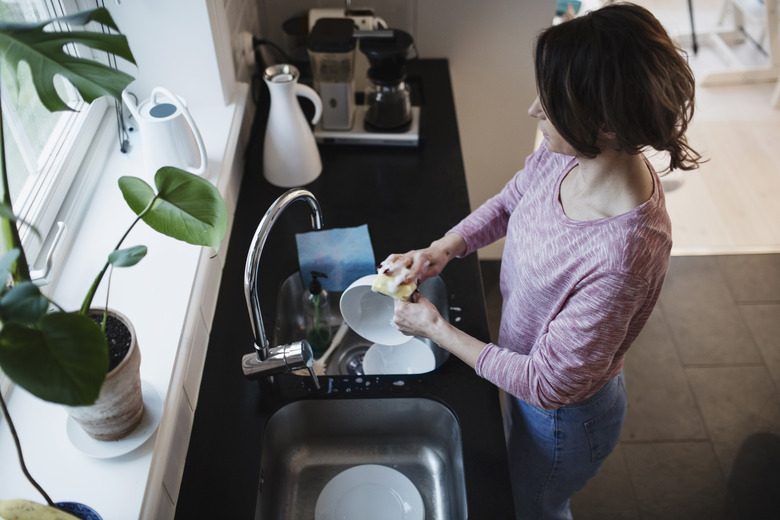How To Clean Soot From Dishes
It's possible to salvage dishes after a fire. Many times, the soot can be cleaned off using the right method. When cleaning dishes after a fire, wear gloves and a mask to protect yourself from the soot. Soot is very dangerous if ingested, so if anything seems questionable, throw it away as a health precaution.
Cleaning Everyday Dishes
Cleaning Everyday Dishes
Most kitchen dishes and utensils can be washed with liquid dish detergent or Dawn. Soot contains grease, which can make it difficult to remove. After soap and water, Accutech Restoration and Remodeling suggests rinsing the dishes two times. The first time, rinse with bleach unless it would damage the item, and the second time, rinse with clean water and soap. Bleach sanitizes dishes and can remove stains.
Cleaning China
Cleaning China
Check the dishes closely to see if there are any cracks since china is sensitive to intense heat. How To Clean Stuff recommends filling your kitchen sink with water and pouring in two to three cups of white vinegar and mixing the solution together. Gently place the china in the sink so that it's fully submerged. Allow the dishes to soak for several minutes then wipe them clean with a cloth.
If the soot is particularly dark and not responding well to the above method, you can use equal parts of water and white vinegar for a stronger solution. Mix it in a spray bottle and clean each dish individually. Alternately, use isopropyl alcohol if white vinegar isn't getting you the results you want according to How To Clean Stuff. Don't mix white vinegar and isopropyl alcohol, however.
How To Clean Stuff warns against using cleaning products that contain ammonia or bleach when cleaning china as this can cause damage to the dishes. Liquid dish soap is another good option, but read the ingredients because some contain ammonia.
Cleaning Pots and Pans
Cleaning Pots and Pans
American Red Cross suggests using liquid dish soap and water to clean soot off pans, pots and metal flatware. You can polish them after if needed.
Some pots and pans may get burn marks on them from the stove, a house fire or being used over a campfire. To remove these spots, you can make baking soda paste. World Of Pans suggests mixing equal parts baking soda and water and then scouring the burned area. You can add a drop or two of liquid dish soap if desired, then rinse with soap and water. This method is also gentle enough for painted cookware and enamel. Don't use baking soda on aluminum pots and pans.
Ketchup is another great all-natural option for cleaning black marks, according to World of Pans. Place a small amount of ketchup on a soft sponge and scrub gently until the black marks fade away. You may need to repeat the process if the marks are dark. Rinse the ketchup off with dish soap.
Cleaning up after a house fire can feel overwhelming. A fire doesn't have to mean disaster for all of your kitchen dishes and utensils. Try these cleaning methods and see what you can save with a good scrubbing. Some home restoration services offer professional-grade smoke damage cleaning supplies as well.
